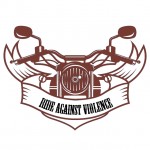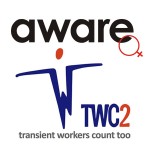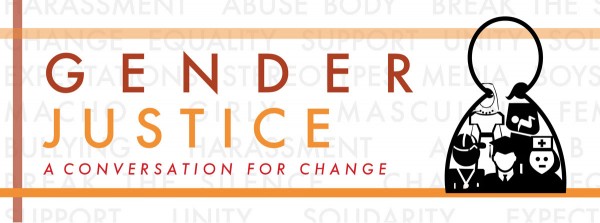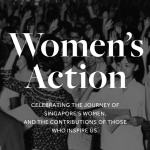 By Kokila Annamalai, We Can! Campaign Manager
By Kokila Annamalai, We Can! Campaign Manager
The case of the woman who died at the hands of her husband demonstrates that rethinking gender roles is critical to preventing domestic violence (“Chinese national, 61, gets 10 years’ jail for strangling wife”; Nov 3).
The husband became violent towards his wife because he felt humiliated at receiving financial support from her. He was also angered that she refused intimacy after he woke her at 4am. Just after this refusal, he attacked and killed her.
Parts of this story are familiar. The Association of Women for Action and Research has encountered several cases of husbands turning abusive once their wife earned more than them or enjoyed career advancement.
As with this man, they used violence, sexual coercion and controlling behaviour to regain the power they believed they had lost in the relationship. These cases highlight how destructive gender roles can be.
First, in a mutually supportive relationship, a husband would celebrate his wife’s career success. But if his role and self-worth are tied to being the family’s chief breadwinner, then her achievements become threatening to his status.
Rigid gender norms of what a real man should be like in a relationship are harmful. They can transform a man’s natural distress at unemployment or career difficulties into an unreasonable resentment of the woman who is assisting him.
Second, in an equal relationship, spouses respect each other’s boundaries and right to decide whether to have sex at any one time.
But if a husband believes marital sex should primarily serve his needs, then his wife’s refusal of a sexual request may be seen as a denial of his entitlement, rather than something he should accept as part of mutual respect.
We are troubled that the violence here was presented as a fight, rather than an attack, and that the victim was described as provoking the killer.
How can a woman’s wish to stay in the same country as her daughter, her refusal to have sex after a 4am quarrel or her financial support of a husband in need be considered provocations?
If we are serious about addressing domestic violence, we must call it by its name and reject attempts to excuse or minimise its severity.
To reduce domestic violence, both state and society must emphasise the importance of gender equality within marriages and relationships. A woman’s financial success is a reason for her husband to feel glad, not ashamed.
We urge the Government to fully remove marital immunity against rape in the Penal Code, to send a strong signal that women have the right to decide whether to have sex with a spouse. Marriage is not blanket consent.
Fostering equal relationships based on mutual respect is critical to preventing domestic violence and ensuring the safety of all members of society.
This letter first appeared in TODAY Voices on 9 November.





 Change your profile picture to our official white ribbon badge to show your support from 25 November to 1 December
Change your profile picture to our official white ribbon badge to show your support from 25 November to 1 December

 A guest blog post by Camille Neale
A guest blog post by Camille Neale Last week, AWARE and TWC2 released a joint statement calling on the Ministry of Manpower, the Ministry of Law, the Attorney-General’s Chambers and the Singapore Police Force to
Last week, AWARE and TWC2 released a joint statement calling on the Ministry of Manpower, the Ministry of Law, the Attorney-General’s Chambers and the Singapore Police Force to  Recently, the media has discussed the camera surveillance of domestic workers by employers. Reports state (and our experience tells us) that this includes the use of cameras in bathrooms and in the workers’ sleeping quarters.
Recently, the media has discussed the camera surveillance of domestic workers by employers. Reports state (and our experience tells us) that this includes the use of cameras in bathrooms and in the workers’ sleeping quarters. Creating an environment where talent can thrive and rise to the top is critical in achieving fully productive organisations and governments. Despite significant advances globally in women’s health, education and leadership opportunities in recent decades, gender equality and women’s leadership still lags in Asia.
Creating an environment where talent can thrive and rise to the top is critical in achieving fully productive organisations and governments. Despite significant advances globally in women’s health, education and leadership opportunities in recent decades, gender equality and women’s leadership still lags in Asia. Join other youth in creating a gender-equal world.
Join other youth in creating a gender-equal world. Gender Justice: A Conversation for Change is a two-day youth forum, a safe space for us to think and talk about what’s gone wrong – and how to put it right – in a world that won’t let us forget our gender for a minute. Join us to discuss strategies for change, and our shared hopes for a fairer, more equal world.
Gender Justice: A Conversation for Change is a two-day youth forum, a safe space for us to think and talk about what’s gone wrong – and how to put it right – in a world that won’t let us forget our gender for a minute. Join us to discuss strategies for change, and our shared hopes for a fairer, more equal world.

 AWARE was recently invited to submit recommendations to the proposed amendments of the Women’s Charter through the public consultation portal REACH. We have submitted our comments on the proposed amendments in the Women’s Charter (Amendment) Bill 2016. As stated in the Consultation Paper of the Ministry for Social and Family Development (MSF), the proposed changes are:
AWARE was recently invited to submit recommendations to the proposed amendments of the Women’s Charter through the public consultation portal REACH. We have submitted our comments on the proposed amendments in the Women’s Charter (Amendment) Bill 2016. As stated in the Consultation Paper of the Ministry for Social and Family Development (MSF), the proposed changes are: Amid SG50’s stories of national progress, one major facet of Singapore’s achievements – the struggle for women’s rights and gender equality – will soon be brought under a spotlight.
Amid SG50’s stories of national progress, one major facet of Singapore’s achievements – the struggle for women’s rights and gender equality – will soon be brought under a spotlight.